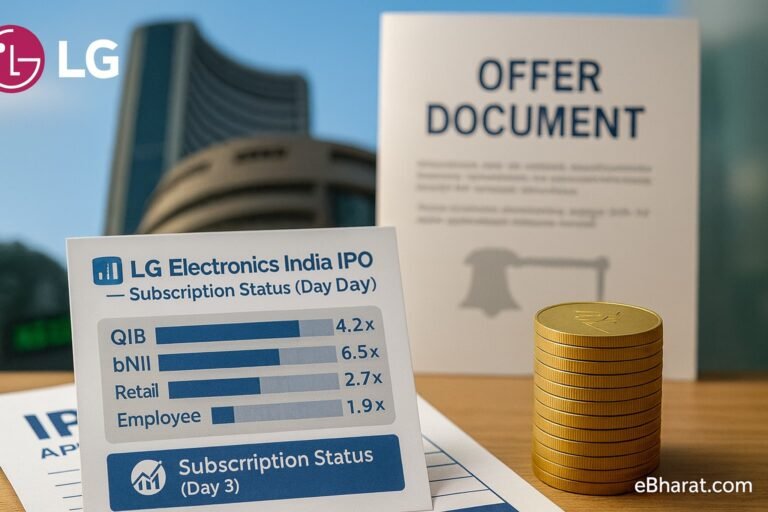
India’s benchmark equity indices opened weaker today, as investor sentiment soured over the U.S. government’s sharp hike in H-1B visa fees. The BSE Sensex fell over 200 points, while the NSE Nifty50 slipped below the 25,150 mark.
Key Market Moves
- The Nifty50 dropped about 0.33%, trading around 25,117.80 in early trade.
- The Sensex was down approximately 0.32%, near 81,889.71 as of 10:22 a.m. IST.
- Technology / IT shares bore the brunt, with the Nifty IT index falling around 0.6% in morning trade—continuing the slide after a ~3% drop on Monday.
What Triggered the Drop
Investor concerns focused on the recent U.S. policy change making fresh H-1B visa applications subject to a US$100,000 fee—a cost that could significantly impact Indian IT companies relying on U.S. contracts, on-site deployment, and travel of skilled workers.
Mixed Sectoral Signals
- The auto sector bucked the broader weak trend: The Nifty Auto index jumped about 1%, driven by strong dealership footfall during the opening of the Navratri festival and benefiting from recent GST rate cuts.
- Among top gainers: Maruti Suzuki India saw strong buying, while Mahindra & Mahindra and Eicher Motors also posted gains.
Other Factors in the Mix
- The rupee came under pressure, weakening slightly against the U.S. dollar amid visa concerns and foreign exchange flows.
- Global cues remained mixed, with investors watching closely for signals from U.S. monetary policy and international trade dynamics.
Expert View & Investor Take
Market analysts believe that the visa fee increase represents more than a regulatory tweak—it poses structural challenges for the Indian IT sector, which derives a large share of revenues from U.S. clients. Margins could face pressure if onsite deployment becomes more costly; firms might need to rely more on remote/onsite mix, local U.S.-based staff, or model shifts to manage costs.
Investors may need to re-examine their exposure to IT-heavy portfolios and watch auto and consumption sectors, which are getting some relief from domestic policy tailwinds.
What to Watch Next
- How IT firms respond: cost absorption, contract renegotiations, offshoring vs onsite balance.
- Currency movements, especially the rupee vs the dollar.
- Domestic demand indicators boosted by GST cuts and festival season.
- Foreign institutional investor (FII) flows, which can amplify or dampen the market’s response.
“For now, markets remain cautious — waiting to see if policy clarity and sector resilience can help the Sensex and Nifty recover lost ground.”












